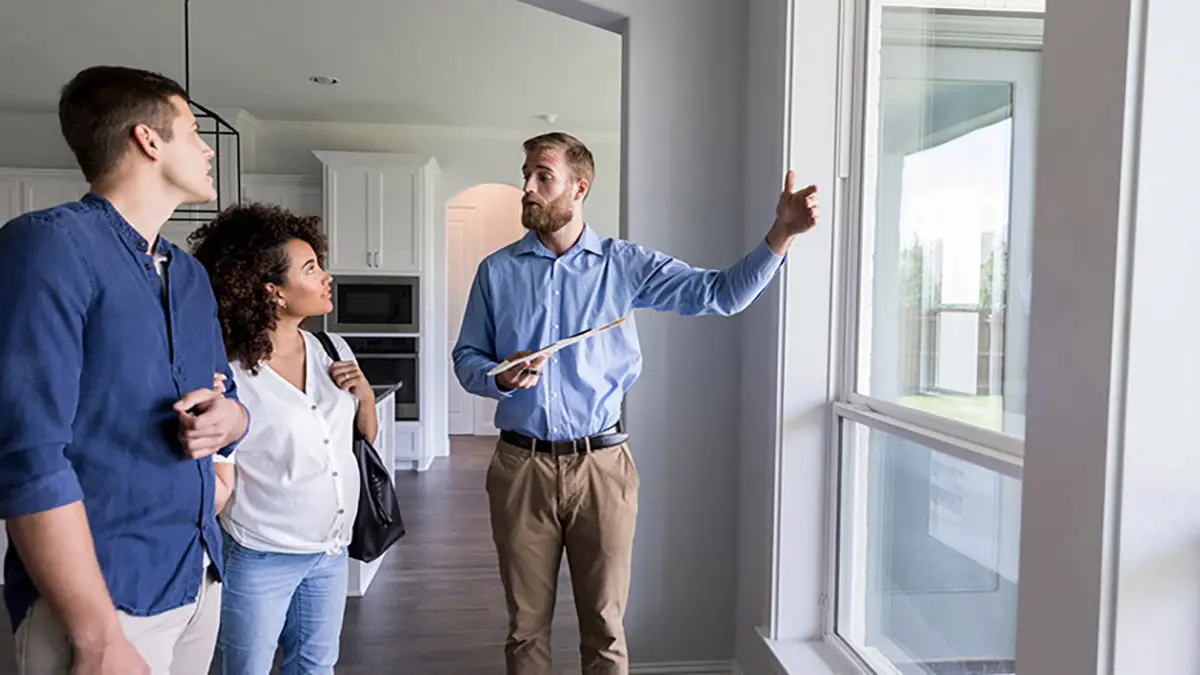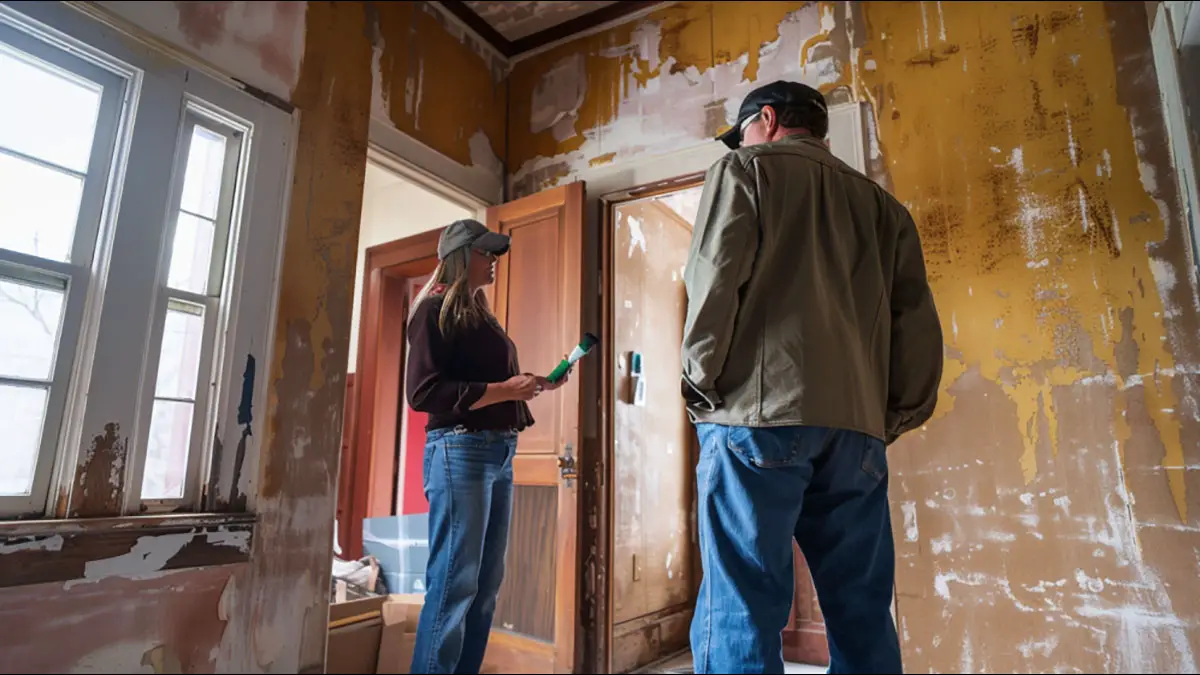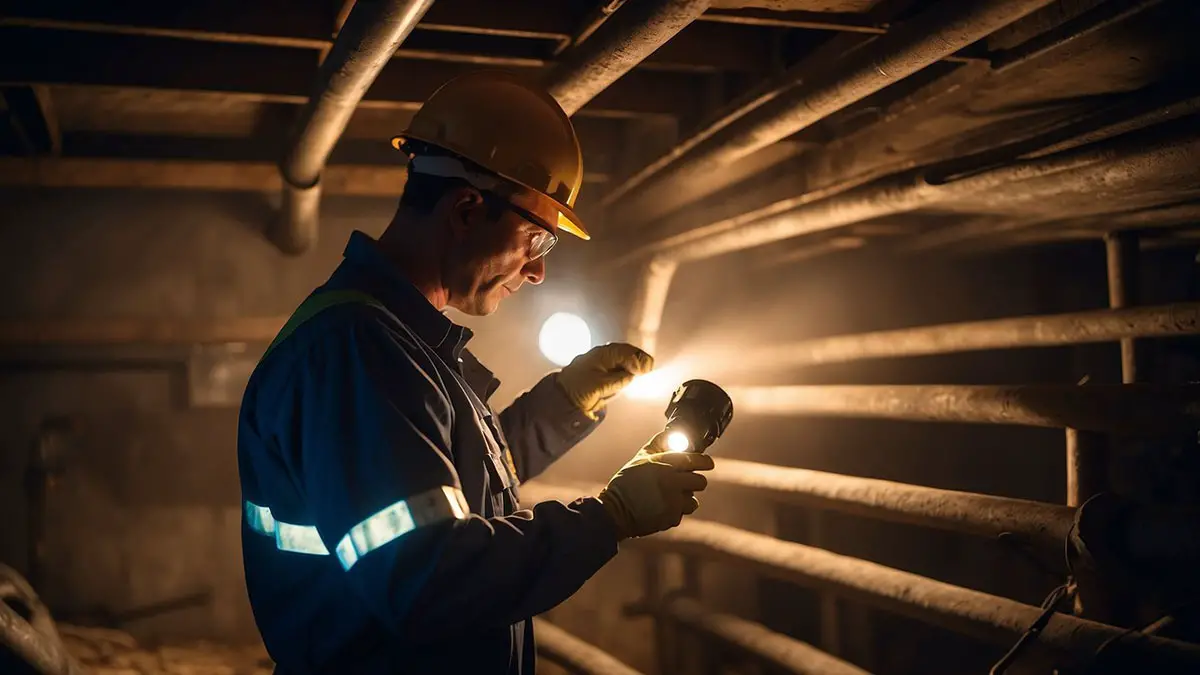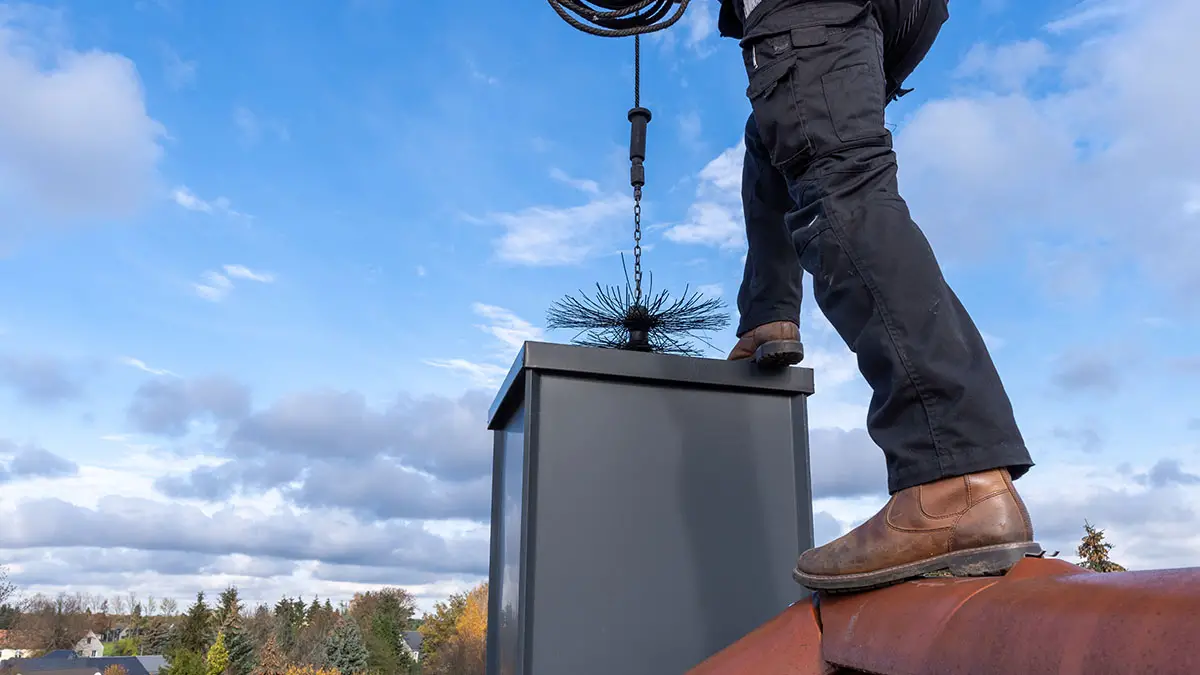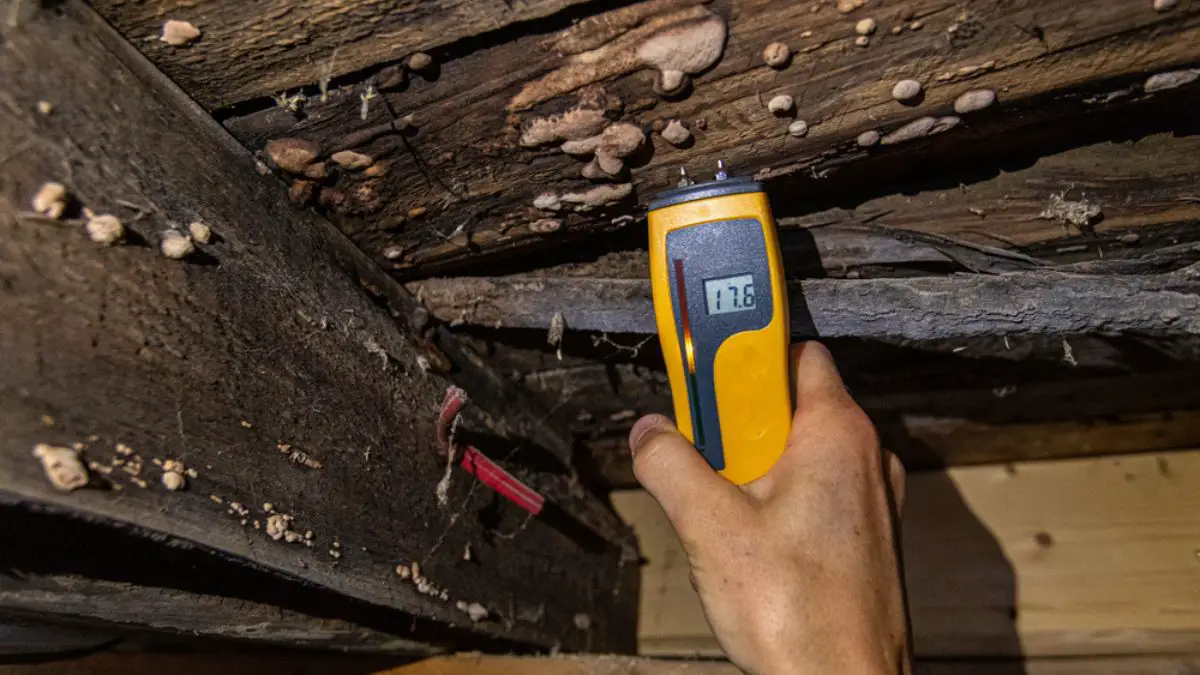Key Takeaways:
- Home inspectors evaluate structural integrity, major systems (like electrical, HVAC, and plumbing), and safety hazards, providing a comprehensive report on the home’s condition.
- Inspections cover a wide range, including the foundation, roof, interior and exterior components, and site conditions, but they do not guarantee the detection of all issues.
- Home inspections have limitations; they are non-invasive and may not reveal hidden problems like those behind walls or under floors, emphasizing the importance of understanding the scope.
- The inspector’s expertise is a critical factor; their knowledge and experience significantly impact the thoroughness and accuracy of their findings, highlighting the importance of selecting a qualified inspector.
Home inspectors look at the home’s foundation, roof, walls, ceilings, floors, windows, doors, and major appliances. They operate the home’s heating, ventilation, air conditioning (HVAC) systems, plumbing, and electrical systems and accessible attics, crawl spaces, and basements for potential issues.
The primary responsibilities of a home inspector include:
- Structural Components: Inspecting the home’s structural integrity, including foundations and framing.
- Major Systems: Evaluating the condition of the electrical, HVAC, and plumbing systems to ensure they are functioning correctly.
- Roof and Exterior: Checking the roof, exterior walls, windows, and doors for damage or defects.
- Interior Components: Assessing interior elements such as walls, floors, ceilings, and installed appliances for issues.
- Site Conditions: Examine the property’s site for problems affecting the structure, such as improper drainage or retaining walls.
- Safety Hazards: Identifying any safety issues related to fireplaces and fuel-burning appliances.
Home inspectors provide a detailed report of their findings, which includes checklists, summaries, photographs, and notes. This report estimates the age of major systems and equipment and recommends repairs and replacements. It’s important to note a home inspection is not a pass-fail exam but rather an assessment to uncover issues with the home.
The home inspection gives prospective buyers an objective, informed opinion on the home’s condition, detached from the emotional aspects of the buying process. This helps buyers make informed decisions, such as negotiating repairs with the seller, adjusting the purchase price, or even deciding to walk away from the deal.
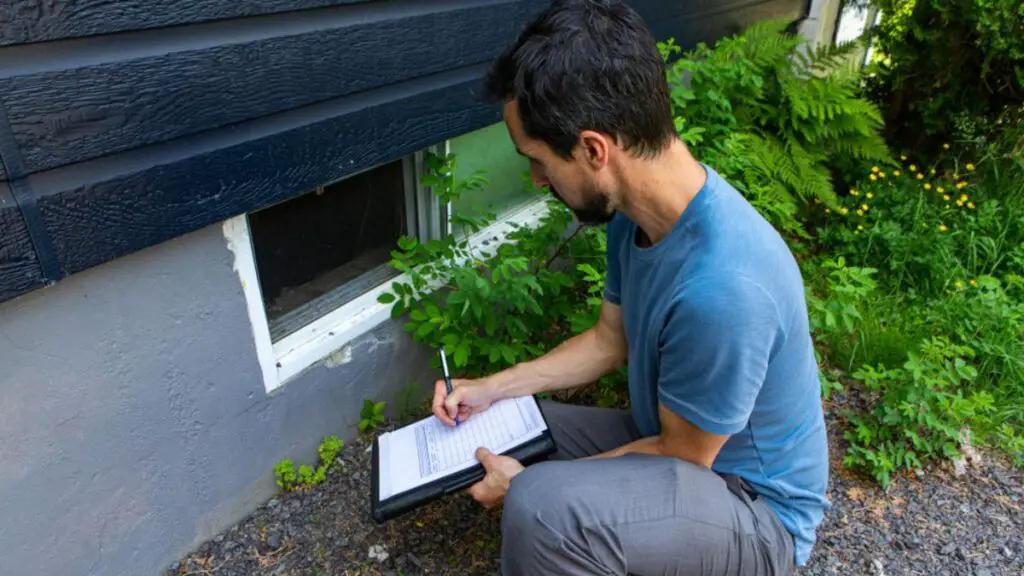
What Do Home Inspectors Look For?
When you’re buying a home, it’s a smart move to bring in a home inspector. Their job is to check out the property and spot any problems.
A home inspector looks closely at the inside and outside of a house, covering areas that are easy to get to without moving things around. They’re all about giving buyers and sellers the lowdown, helping them feel secure in their decisions, or waving a red flag when needed.
So, what’s on a home inspector’s checklist? They’re trained to assess:
- The roof and attic
- Exterior parts like windows, doors, and siding
- The basement, foundation, and the structure’s bones
- Heating and cooling setups
- Plumbing, electrical, and air systems
- Fireplaces and chimneys
- Insulation and airflow
- Interior bits like walls, ceilings, and floors
Inspectors use everyday controls to test things, like flipping switches, running taps, and checking some appliances to ensure they work correctly. But don’t expect them to check every appliance or move heavy stuff around.
They’re looking for big red flags like roof leaks, shaky railings, cracks in the foundation, plumbing issues, exposed wires, missing insulation, signs of pests, and foggy windows. Their report will break down these issues by location and suggest when to call in a pro for repairs.
While inspectors do a thorough job, they won’t catch everything, especially if it’s hidden or needs a deep dive. Still, their insights are invaluable, helping you know what you’re getting into or negotiating repairs before sealing the deal.
Here is an expanded overview of what specific items a home inspector examines in key areas of a house:
Roof Inspection
Inspectors have various roof examination methods, including ground-based observations, ladder use, and direct roof access. Technological aids like drones are also employed for safety and efficiency. The inspection focuses on several key aspects:
- Roof Coverings: Evaluation of shingles, tiles, and metal roofing.
- Water Management Systems: Checking the functionality of gutters and downspouts.
- Roof Features: Inspection of skylights, vents, and flashing.
- Structural Elements: Assessing chimneys and other penetrations for integrity.
- Roof Structure: Looking for visible signs of sagging or defects.
Exterior Inspection
The exterior inspection encompasses a wide range of elements to ensure the home’s outer layer is in good condition, including:
- Siding Materials: Checking the condition of brick, wood, vinyl, and other siding materials.
- Openings: Inspecting windows and doors for proper installation and condition.
- Outdoor Living Spaces: Evaluating decks, patios, and porches for safety and integrity.
- Access Features: Assessing railings and stairs for safety.
- Roof Extensions: Examining eaves and fascia for signs of damage or decay.
- Groundwork: Checking driveways and walkways for proper drainage.
Structural Inspection
This inspection delves into the foundational and structural components of the home, focusing on:
- Foundation: Looking for cracks, moisture, and other signs of foundation issues.
- Support Structures: Inspecting floor framing, beams, joists, and subfloors for integrity.
- Water Intrusion: Identifying any signs of water intrusion in critical areas.
- Crawl Spaces: Assessing crawl spaces for dampness and adequate clearance.
- Insulation and Ventilation: Ensuring proper insulation and ventilation in attics, basements, and crawl spaces to prevent moisture problems.
Heating/Cooling Systems
The inspection of heating and cooling systems is crucial for ensuring the home’s environmental comfort, including:
- HVAC Equipment: Checking for rust, leaks, and proper connections.
- Distribution Systems: Inspecting air handlers, ductwork, and other components.
- Operational Test: Testing the heating and A/C systems for proper operation.
- Air Flow: Examining thermostats, vents, and returns for efficiency.
Plumbing System and Fixtures
Plumbing inspections focus on the functionality and safety of the water and waste systems, including:
- Water Pressure: Testing water pressure at various fixtures.
- Faucets and Fixtures: Checking the operation of all faucets and fixtures.
- Drainage: Assessing the flow of drainage systems.
- Water Heater: Inspect the water heater tank, valves, and connectors for safety and efficiency.
- Fuel Systems: Evaluating fuel storage and pipe condition.
- Sump Pump: Testing the operation of the sump pump.
Electrical Systems
Electrical inspections are critical for safety and functionality, focusing on:
- Control Panels: Inspect the main panelboard, circuit breakers, and meter.
- Wiring: Checking all wiring for damage and proper connections.
- Functionality Tests: Testing lights, ceiling fans, outlets, switches, and GFCIs.
- Safety Features: Evaluating the placement and functionality of smoke detectors.
Additional Inspections
Beyond the standard inspections, additional assessments may be necessary for a comprehensive understanding of the home’s condition:
- Radon Testing: Conducting tests to detect radon gas levels.
- Termite Inspection: Checking for signs of termite damage or infestation.
- Mold Assessment: Identifying potential mold growth to ensure air quality and health.
Hiring a Home Inspector: Expertise and Reliability
Selecting the right home inspector is a critical step in the home buying or selling process. This choice can significantly impact your understanding of the property’s condition and influence your future decisions. Here’s how to ensure you choose a home inspector who brings expertise, reliability, and peace of mind to your real estate transaction.
Qualifications and Certifications
- Certified Professional Inspector (CPI): Look for inspectors who have earned the CPI designation from reputable organizations like the National Association of Certified Home Inspectors (NACHI) or the American Society of Home Inspectors (ASHI). These certifications indicate the inspector has undergone rigorous training and adheres to a strict code of ethics and standards of practice.
- State Licensing: Some states require home inspectors to be licensed. Check your state’s requirements and ensure your inspector’s license is current. Not all states have licenses for home inspectors.
- Continuing Education: The best inspectors stay informed about the latest in building practices, materials, and inspection technologies. Ask about their commitment to continuing education.
Experience and Specialization
- Years in Business: Experience matters. Inquire about how long they’ve been inspecting homes and how many inspections they’ve completed.
- Specialized Services: If your potential home has unique features or you have specific concerns (e.g., older homes or properties in flood zones), ensure the inspector has experience in those areas or offers specialized inspections such as radon testing, termite inspection, or mold assessment.
Insurance and Professional Affiliations
- Errors and Omissions Insurance (E&O): This insurance protects you in case the inspector misses something significant during the inspection.
- Professional Affiliations: Membership in organizations like NACHI or ASHI is a good sign. These affiliations often require members to meet ongoing education requirements and adhere to industry standards.
Reviews and References
- Client Feedback: Look for online reviews or ask the inspector for references from past clients. Hearing about others’ experiences can provide insight into the inspector’s thoroughness, professionalism, and communication style.
- Sample Reports: Request a sample inspection report. It should be detailed, easy to understand, and include photos. This will give you an idea of how the inspector communicates their findings.
Availability and Communication
- Scheduling: Ensure the inspector’s availability aligns with your timeline. Delays in obtaining an inspection can affect real estate transactions.
- Communication Style: Choose an inspector who communicates clearly and is willing to discuss their findings. A good inspector should be able to explain issues in layman’s terms to non-experts and provide practical advice on addressing any problems.
Understanding Home Inspection Reports
After the meticulous examination of a property by a home inspector, you’re presented with a comprehensive report. This document is more than just a checklist; it’s a detailed narrative and analysis of the home’s condition, highlighting its strengths and areas of concern.
Understanding how to read and interpret this report is crucial for making informed decisions about your real estate transaction. Here’s a breakdown of what you can expect in a home inspection report and how to use this information effectively.
Key Components of a Home Inspection Report
- Summary of Major Findings: This section highlights the most critical issues discovered during the inspection. It’s a snapshot of potential deal-breakers, safety hazards, or significant repair needs.
- Detailed Findings by Category: The report is organized into sections based on the home’s systems and structures—roof, foundation, HVAC, plumbing, electrical, etc. Each category will detail the condition of components, noting any defects, maintenance issues, or potential future concerns.
- Photographs and Annotations: Visual evidence supports the inspector’s findings, providing clarity and context for the issues noted. Photos can be beneficial for understanding the location and extent of a problem.
- Maintenance Recommendations: Beyond immediate repair needs, some inspectors offer maintenance tips to prevent future problems. This advice can be invaluable for first-time homeowners or those unfamiliar with property upkeep.
- Safety Notes: Any safety issues, such as exposed wiring, inadequate smoke detectors, or structural hazards, will be prominently noted. These concerns are typically prioritized for immediate attention.
How to Use the Report
- Negotiation Tool: With the report’s findings, buyers can negotiate with sellers over repairs, price adjustments, or concessions. It’s a powerful tool for addressing significant issues before finalizing the sale.
- Planning for Future Expenses: The report provides a roadmap for maintenance and repairs for buyers and sellers. Understanding the home’s condition allows for better financial planning and prioritization of projects.
- Peace of Mind or a Red Flag: Sometimes, the report can affirm the property’s quality and condition, offering peace of mind about the investment. It could reveal problems that are too costly or complex, serving as a red flag to reconsider the purchase.
Interpreting the Findings
- Understand the Scope: Remember, a home inspection is visual and non-invasive. Some severe issues require further evaluation by specialists (e.g., structural engineers and pest control experts).
- Prioritize the Issues: Not all findings are equally urgent. Distinguish between cosmetic issues, minor repairs, and major defects.
- Ask Questions: If any part of the report is unclear, don’t hesitate to ask the inspector for clarification. A good inspector will be willing to discuss their findings and explain the implications.
What Happens if Major Problems Are Found?
- Negotiation: Buyers can use the inspection report to negotiate with sellers for repairs, a lower purchase price, or concessions.
- Walk Away: If the issues are too significant or costly, buyers could walk away from the purchase, mainly if the contract includes an inspection contingency.
- Further Evaluation: For some problems, seeking further evaluations from specialists before buying is advisable.
FAQs About Home Inspections
How long does a home inspection take?
The time frame for a home inspection can vary depending on the property’s size, age, and condition. On average, an inspection takes 2-4 hours. Larger, older, or more complex homes could require more time for a thorough evaluation.
Can a home fail an inspection?
Major issues are one of the things that fail inspections. Unlike tests or exams, a home inspection is not about passing or failing. Instead, it assesses the property’s condition and identifies repairs and maintenance needs. The decision to proceed with a purchase, request repairs, or renegotiate terms is up to the buyer.
Should buyers attend the home inspection?
Yes, if possible. Attending the inspection provides an invaluable opportunity to see the property through the inspector’s eyes. You can ask questions, learn about the home’s systems and maintenance needs, and get a firsthand understanding of any issues identified.
How much does a home inspection cost?
The home inspection cost can vary based on the property’s location, size, and the inspector’s experience. Prices can range from $300 to $500 or more on average. While tempting to choose the cheapest option, the insights and expertise of a skilled inspector are worth the investment.
Is a home inspection required?
While not a requirement, a home inspection provides critical information about the property’s condition and can protect you from unforeseen expenses and safety issues.
Can I perform the inspection myself?
While homeowners can perform a basic visual inspection, a professional home inspector has the training, experience, and tools to conduct a comprehensive evaluation.
Do home inspectors check for mold?
Home inspectors can inspect for mold. Additional certification is needed to test for mold. Identification of mold requires lab testing, which carries additional inspection fees.
Do home inspectors check for asbestos?
Inspectors may indicate a material may contain asbestos and refer you to a qualified contractor. Home inspectors do not test for hazardous materials like asbestos. Extra certification is required. Identification of asbestos requires lab testing, which carries additional inspection fees.
Do home inspectors check fireplaces?
Yes. Home inspectors inspect fireplaces and chimneys for defects but don’t inspect flues, often requiring special licensing, certification, or a chimney sweep.
Do home inspectors check gutters?
Yes. Home inspectors check gutters for blockages, slope, discharge, and visible condition.
Do home inspectors check for lead paint?
Generally no. Checking for lead paint requires additional EPA certification beyond a standard home inspection.
Do home inspectors check permits?
No. Verifying permits and code compliance is not part of a home inspector’s duties.
Do home inspectors check for radon?
Home inspections do not include radon testing. Home inspectors can offer radon testing for an additional fee. Radon testing involves special equipment beyond a visual inspection.
Do home inspectors go into attics?
Yes, if it is readily accessible. Inspectors examine attic insulation, ventilation, and visible framing defects.
Do home inspectors go into crawl spaces?
Yes, if accessible and safe. They will report on ventilation, insulation, moisture issues, etc.
Do home inspectors inspect solar panels?
No. Solar systems are specialty equipment not covered in the standard scope of a home inspection.
Do home inspectors check/open windows?
Yes. Home inspectors will open and close a sample of windows to check operation.
Do home inspectors check the foundation?
Yes. They visually examine accessible areas of foundation for cracks, moisture penetration, etc.
Do home inspectors look for cosmetic issues?
No. Cosmetic flaws like minor paint defects or wallpaper damage are not reported. Drywall cracks may be noted for further evaluation.
Do home inspectors check appliances?
Built-in appliances are operated, but detailed testing is not performed during a home inspection.
Do home inspectors check every outlet?
No. A representative sampling of outlets/switches is tested with an outlet tester. They don’t remove outlet cover plates.
Do home inspectors check pools or hot tubs?
No. Specialty pools, spas, and related equipment are excluded from a home inspection scope. Many inspectors offer pool and hot tub inspections for an additional fee.



